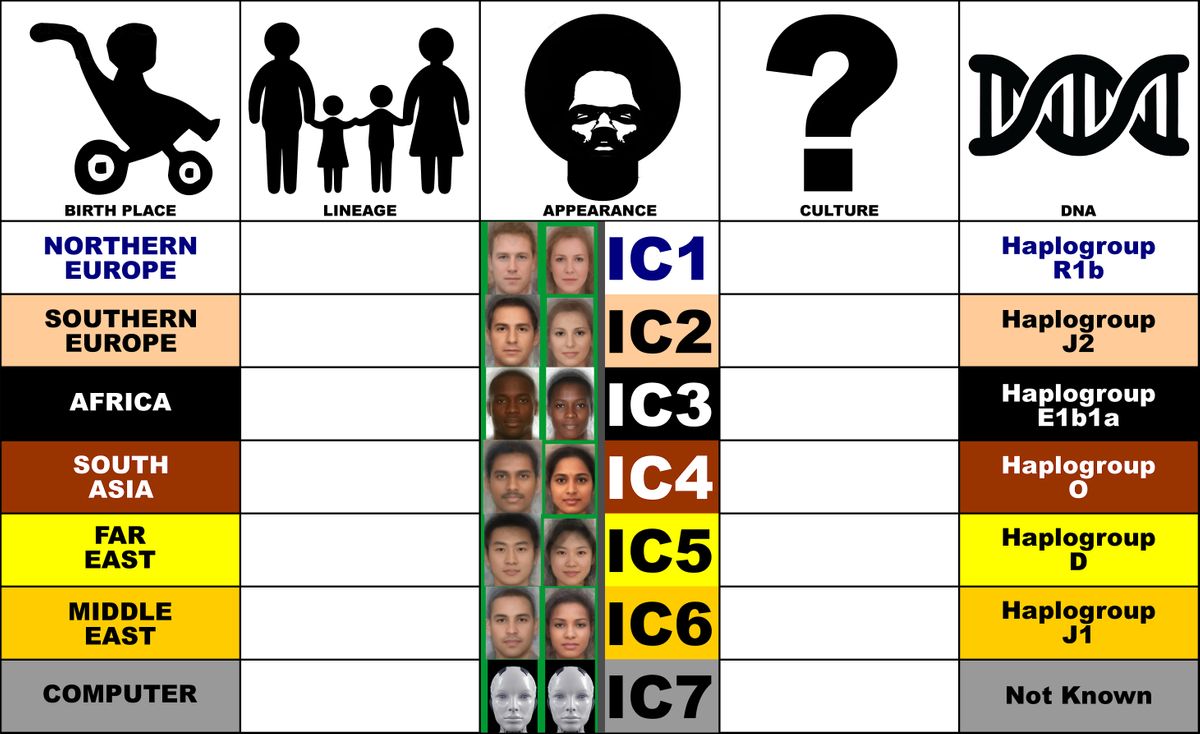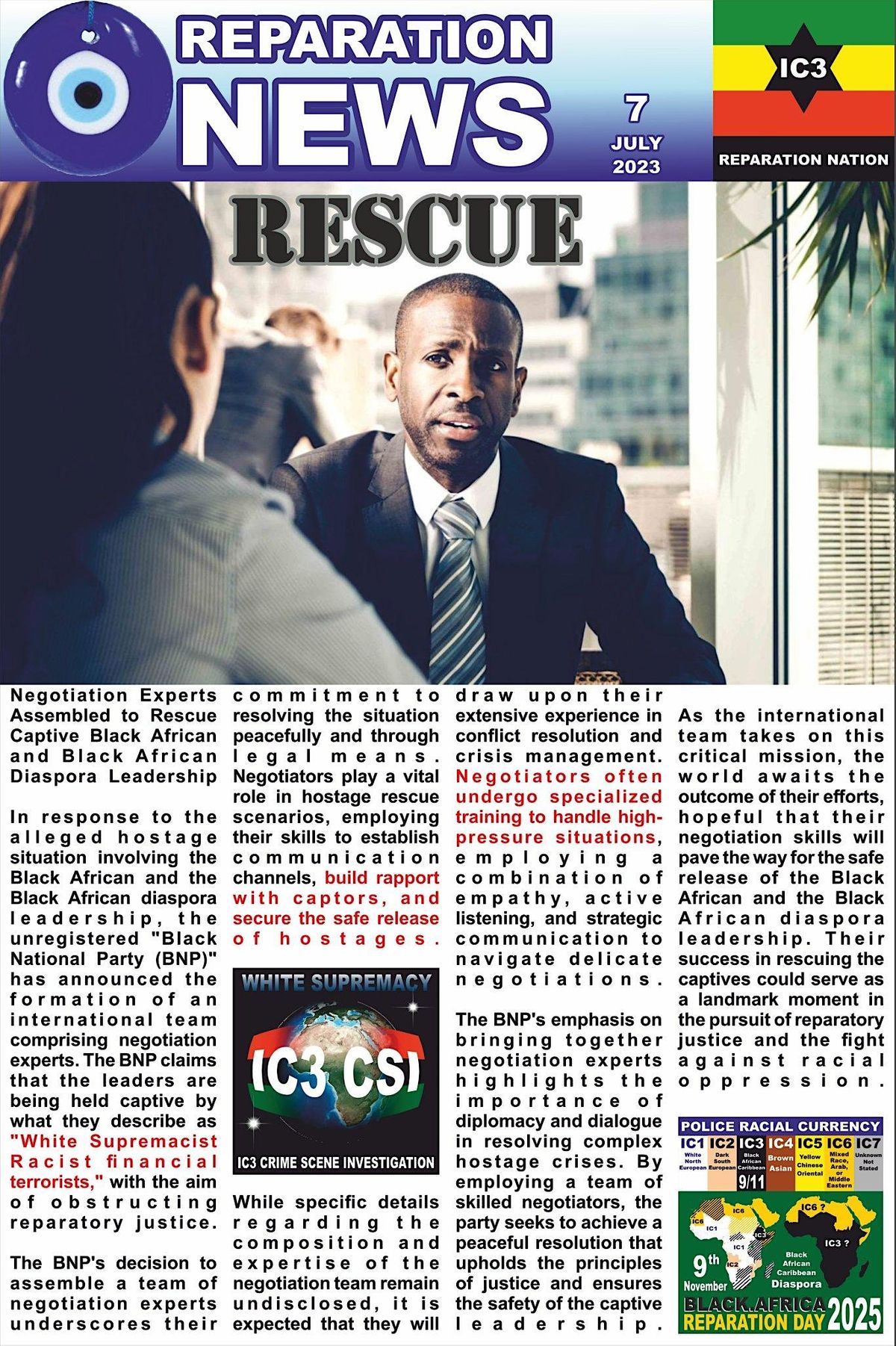OCCUPY BERNIE GRANT ARTS CENTRE TOTTENHAM FOR REPARATIONS NOW HARINGEY
Schedule
Wed, 03 Jul, 2024 at 12:00 pm to Sun, 09 Nov, 2025 at 09:00 pm
UTC+01:00Location
Bernie Grant Arts Centre | London, EN

About this Event
Occupy the Bernie Grant Arts Centre: ADEJA Movement's Reparation Summer Camp 2025Introduction: A Movement for Justice and Unity
In the summer of 2025, the African Diaspora Equity and Justice Alliance (ADEJA) is set to host an unprecedented event at the open public area outside the Bernie Grant Arts Centre (BGAC). Inspired by the Occupy movement, this Reparation Summer Camp will offer a vibrant, 24-hour space for discussions, talks, and artistic expressions centered around Black and Mixed-Black reparation themes, history, arts, health, music, local community, food, and drink. The event is free of charge, ensuring accessibility for all members of the community. This article delves into the details of this groundbreaking initiative, its inspirations, and its potential impact on the community and beyond.
The African Diaspora Equity and Justice Alliance (ADEJA) is an organization dedicated to advancing the well-being, empowerment, unity, and pursuit of historical reparatory justice for Black Africans, the Black African diaspora, and the Mixed-Black diaspora. ADEJA's mission is grounded in an evidence-based approach to reparation claims, ensuring that justice is served on a case-by-case basis.
Key Objectives of ADEJA:
- Historical Reparatory Justice: Addressing historical injustices faced by Black and Mixed-Black communities.
- Empowerment and Unity: Promoting unity and empowerment within the Black and Mixed-Black diaspora.
- Community Engagement: Facilitating open discussions and cultural events that foster community solidarity.
- Educational Initiatives: Providing platforms for learning about Black history, arts, and health.
The Bernie Grant Arts Centre (BGAC), located in Tottenham, London, is a focal point for artistic and cultural expression, particularly within the Black community. Named after Bernie Grant, one of the UK's first Black MPs, the centre stands as a testament to his legacy and commitment to social justice.
Features of the Bernie Grant Arts Centre:
- Art Galleries and Exhibition Spaces: Showcasing works by local and international Black artists.
- Theatre and Performance Spaces: Hosting a variety of performances, from theatre to music and dance.
- Community Workshops and Events: Offering workshops and events that engage the local community in cultural and educational activities.
- Café and Meeting Spaces: Providing a welcoming environment for community gatherings and discussions.
The Occupy movement, which began in 2011 with Occupy Wall Street, sought to address economic inequality and the undue influence of corporations on government. It utilized public spaces to create forums for discussion and activism, inspiring movements worldwide.
Key Principles of the Occupy Movement:
- Nonviolent Protest: Engaging in peaceful demonstrations to draw attention to social issues.
- Public Space Utilization: Using public areas as sites for assembly and dialogue.
- Inclusivity and Participation: Encouraging broad participation and inclusive decision-making processes.
- Raising Awareness: Highlighting systemic issues and advocating for structural change.
The Tottenham riots of 2011, triggered by the police shooting of Mark Duggan, were a significant moment in London's recent history, highlighting deep-seated issues of racial inequality and police violence.
Key Events and Figures:
- Mark Duggan: A Black man whose death at the hands of the police sparked the riots.
- PC Keith Blakelock: A police officer killed during the 1985 Broadwater Farm riot, another instance of community unrest in Tottenham.
- Community Impact: Both incidents underscore the tensions between law enforcement and the Black community, as well as the ongoing struggle for justice and equity.
Goals and Activities
The Reparation Summer Camp at BGAC aims to create an inclusive space for discussions and cultural events focused on Black and Mixed-Black reparations. Key activities include:
- Discussion Forums: Open forums for discussing reparation themes, history, and community issues.
- Art Exhibitions: Showcasing artworks that reflect the experiences and histories of Black and Mixed-Black communities.
- Health and Wellness Workshops: Offering sessions on physical and mental health tailored to the needs of the community.
- Music and Performances: Featuring performances by local artists that celebrate Black culture and heritage.
- Community Meals: Providing food and drink, fostering a sense of community and shared experience.
Accessibility and Inclusivity
One of the core principles of the Reparation Summer Camp is accessibility. By hosting events in the open public area outside BGAC, ADEJA ensures that financial barriers do not prevent community participation. This approach aligns with the organization's commitment to inclusivity and justice.
Camping and Community
Participants are encouraged to bring tents and camp outside BGAC, creating a continuous presence and a dynamic environment for engagement. This setup allows for spontaneous interactions and ongoing discussions, mirroring the communal spirit of the Occupy movement.
Weekly ADEJA Meetings: Planning for the FutureLeading up to the summer camp, ADEJA hosts weekly meetings outside BGAC, following a Speakers Corner format. These meetings serve as planning sessions for the camp and provide a platform for ongoing discussions on Black and Mixed-Black reparation themes.
Meeting Highlights:
- Open Discussions: Encouraging community members to voice their ideas and concerns.
- Planning Sessions: Coordinating the logistics and activities for the summer camp.
- Guest Speakers: Featuring experts on topics related to reparations, history, and community health.
- Cultural Performances: Showcasing local talent and fostering cultural expression.
Reparation Nation Limited plays a crucial role in the success of ADEJA's initiatives. The organization is tasked with raising finance and establishing an international entity to process and distribute reparation claims.
Phase 1: Raising Finance<h4>Objectives:</h4>
- Seed Funding: Raising £10 million through high-net-worth individuals, philanthropists, and socially responsible investment funds.
- Crowdfunding: Utilizing platforms like Kickstarter and GoFundMe to raise £5 million from public contributions.
- Strategic Partnerships: Partnering with NGOs, civil rights organizations, and community groups for financial and in-kind support.
- Grants and Government Funding: Applying for grants from international bodies like the United Nations, African Union, and European Union.
Phase 2: Selling Reparation Bonds<h4>Objectives:</h4>
- Bond Structure Design: Issuing short-term and long-term bonds with competitive interest rates.
- Regulatory Approval: Securing approval from financial regulatory bodies in major markets.
- Marketing and Sales Campaign: Targeting institutional investors, ethical investment funds, and retail investors.
- Transparency and Reporting: Providing detailed annual reports and conducting regular independent audits.
Revenue Streams and Returns<h4>Tradeable Assets:</h4>
- Utilization: Funds used to procure services, goods, and engage in international trade.
- Return: Generating profits from trade activities.
- Cultural Significance: Monetizing cultural assets through exhibitions, cultural exchanges, and media rights.
- Income: Diversified revenue from cultural and historical assets.
- Incentive Programs: Encouraging Black Betterment through community participation and economic activities.
- Impact: Fostering a thriving community, leading to increased economic contributions and stability.
Mechanism:
- Incentives: Financial rewards for whistleblowers providing substantial evidence.
- Claim Validation: Robust evidence-based validation process.
Investor Benefits:
- Social Impact: Contributing to rectifying historical injustices and promoting racial equality.
- Financial Returns: Attractive returns from bond interest and participation in social justice initiatives.
- Brand Alignment: Enhancing corporate and individual reputations through association with a high-profile, ethical initiative.
The ADEJA Reparation Summer Camp at BGAC is more than an event; it's a movement towards justice, equity, and community empowerment. By occupying public space, ADEJA ensures that everyone, regardless of financial means, can participate in this crucial dialogue. The involvement of Reparation Nation Limited and the structured phases of fundraising and bond issuance pave the way for sustainable support of ADEJA's initiatives.
This summer, join the ADEJA movement at the Bernie Grant Arts Centre. Together, we can create a future where justice and equity are not just aspirations but realities for Black and Mixed-Black communities worldwide.
Discover the Future of Reparations with Reparation Nation Limited
Are you passionate about social justice and historical reparation? Do you want to learn more about how we plan to establish the African Diaspora Equity and Justice Alliance (ADEJA) and make a meaningful impact? Join our free weekly discussion events where we dive deep into our comprehensive plan, covering both Phase 1 and Phase 2, and explore other relevant topics.
- Learn About Phase 1: Understand our strategy to raise finance for the establishment of an international entity that will process and distribute reparation claims to Black and Mixed-Black people.
- Explore Phase 2: Get insights into how we plan to sell Reparation Bonds and ensure sustained funding for ADEJA’s initiatives.
- Expert Insights: Engage with leading reparation consultants who are considered "The best Reparation Consultants in the known world, probably."
- Interactive Discussions: Participate in open discussions, ask questions, and share your thoughts on how we can achieve historical reparatory justice.
- Community Building: Connect with like-minded individuals and become part of a community dedicated to social justice and empowerment.
- Knowledge: Comprehensive understanding of ADEJA’s mission and strategic plans.
- Inspiration: Motivation to contribute to and support reparatory justice initiatives.
- Networking: Opportunities to meet experts, activists, and community leaders.
- Engagement: Active participation in shaping the future of reparatory justice.
Together, we can create a future of justice and equity. Don't miss out! For more information, contact us [email protected].
<h4>Reparation Nation Limited – Empowering Change, One Step at a Time</h4>Reparation Nation Limited is dedicated to raising the capital needed to establish ADEJA and ensuring its long-term success through innovative financial strategies and community engagement.
Phase 1: Raising Finance for Establishment<h4>Objective</h4>
To raise capital to establish an international entity/state/central bank/organization, named African Diaspora Equity and Justice Alliance (ADEJA), which will process and distribute reparation claims to Black and Mixed-Black people.
- Initial Seed Funding:
- Target: Raise £10 million.
- Approach: Reach out to high-net-worth individuals, philanthropists, and socially responsible investment funds.
- Rationale: Attract initial investors passionate about social justice and historical reparation.
- Crowdfunding Campaign:
- Platform: Utilize platforms like Kickstarter, GoFundMe, and Indiegogo.
- Target: Raise £5 million from public contributions.
- Marketing: Develop a robust social media and marketing campaign highlighting the mission and potential impact of ADEJA.
- Strategic Partnerships:
- Entities: Partner with NGOs, civil rights organizations, and community groups.
- Contribution: Seek both financial support and in-kind contributions such as expertise, resources, and advocacy.
- Benefit: Leverage existing networks and credibility.
- Grants and Government Funding:
- Application: Apply for grants from international bodies like the United Nations, African Union, and European Union.
- Focus: Emphasize alignment with global human rights and equality initiatives.
- Outcome: Secure multi-year funding commitments.
Phase 2: Selling Reparation Bonds<h4>Objective</h4>
To sell Reparation Bonds to finance the activities of ADEJA and ensure sustained funding for the distribution of reparations.
<h4>Steps to Achieve Phase 2</h4>- Bond Structure Design:
- Type: Issue both short-term (5 years) and long-term (10-20 years) bonds.
- Interest Rate: Competitive interest rates to attract institutional and retail investors.
- Backed By: Tradeable assets such as financial resources and precious commodities.
- Regulatory Approval:
- Jurisdictions: Secure approval from financial regulatory bodies in major markets (UK, EU, US).
- Compliance: Ensure full compliance with international financial regulations.
- Marketing and Sales Campaign:
- Target Audience: Institutional investors, ethical investment funds, and retail investors.
- Channels: Financial advisors, investment platforms, and direct marketing.
- Incentives: Highlight potential returns, social impact, and alignment with ESG (Environmental, Social, and Governance) criteria.
- Transparency and Reporting:
- Annual Reports: Provide detailed annual reports on the use of funds and impact.
- Audits: Conduct regular independent audits to maintain transparency and investor confidence.
Investor Appeal<h4>Revenue Streams and Returns</h4>
- Tradeable Assets:
- Utilization: Use funds to procure services, goods, and engage in international trade.
- Return: Generate profits from trade activities, ensuring steady returns for bondholders.
- Reparation Assets Management:
- Cultural Significance: Monetize non-tradeable cultural assets through exhibitions, cultural exchanges, and media rights.
- Income: Diversified revenue from cultural and historical assets.
- Social Credit System:
- Incentive Programs: Create programs that encourage Black Betterment, increasing community participation and economic activities.
- Impact: Foster a thriving community, leading to increased economic contributions and stability.
ADEJA Whistleblower Collaboration<h4>Mechanism</h4>
ADEJA, in collaboration with the White People Protection League (WPPL), offers rewards to whistleblowers who provide evidence leading to successful reparation claims.
<h4>Function</h4>- Whistleblower Incentives: Financial rewards for providing substantial evidence.
- Claim Validation: Robust evidence-based validation process ensures legitimate claims.
- Revenue Impact: Successful claims lead to higher credibility and potential increase in funding from global bodies supporting social justice.
Investor Benefits
- Social Impact: Direct contribution to rectifying historical injustices and promoting racial equality.
- Financial Returns: Attractive returns from bond interest and participation in a growing market for social justice initiatives.
- Brand Alignment: Association with a high-profile, ethical initiative enhances corporate and individual reputation.
Conclusion
Investing in ADEJA through Reparation Nation Limited not only promises financial returns but also contributes significantly to social justice and the empowerment of Black and Mixed-Black communities worldwide. By participating in this pioneering initiative, investors will be at the forefront of a historic movement towards reparatory justice and equity.
Article I: Name and Mission
- Name: The initiative shall be known as the "African Diaspora Equity and Justice Alliance" (ADEJA).
- Mission: ADEJA's mission is to advance the well-being, empowerment, unity, and the pursuit of historical reparatory justice for Black Africans, the Black African diaspora, and the Mixed-Black diaspora, based on an evidence-based claim-by-claim basis.
Article II: Definitions and Classifications
- IC3 Black: Refers to individuals classified as IC3 Black under the race and ethnicity standards established by the UK Government.
- IC Codes: ADEJA recognizes and uses the British Police IC codes for racial and ethnic classification, including:
- IC1: White Northern European
- IC2: Dark Southern European
- IC3: Black
- IC4: Asian
- IC5: Oriental
- IC6: Arab, Mixed-Race, Middle Eastern
- IC7-9: Unknown
Article III: Alignment with the UK Government
ADEJA is an ally of the UK government in terms of their joint enterprise, common purpose, and recognition of the value of race and ethnicity codes for good government.
- National Security: ADEJA's commitment to conserving Protected Characteristics aligns with the UK government's national security interests, ensuring social cohesion and stability.
- Promotion of Racial Equality: Supporting ADEJA demonstrates the UK's commitment to promoting racial equality and combating discrimination, which is in line with international human rights standards.
- Global Leadership: By endorsing ADEJA, the UK can showcase its leadership in addressing historical injustices and fostering empowerment within marginalized communities, contributing to its global reputation as a champion of human rights.
Article IV: Reparation Assets
ADEJA categorizes reparations into two distinct classes:
- Tradeable Assets: Financial resources and precious commodities for procurement of services, goods, and international trade.
- Non-Tradeable Assets: Assets of cultural significance, including sacred cultural items, dedicated to cultural restoration and preservation.
Article V: Member Entities
ADEJA serves as a clearinghouse for all entities that classify themselves as IC3 Black or part IC3 Black.
Member entities are encouraged to contribute to ADEJA's mission through reparations, evidence-based claims, and support for the restoration of cultural identity.
Article VI: Evidence-Based Reparation Claims
ADEJA will process reparatory justice on an evidence-based claim-by-claim basis.
ADEJA, in collaboration with the White People Protection League (WPPL), offers generous rewards to whistleblowers who provide evidence leading to successful reparation claims.
Article VII: Reparation Shares
ADEJA will make Blackness an asset class, paying out reparation shares based on the percentage of Black heritage:
- 100% share for FULL BLACK.
- 75% share for 3/4 BLACK.
- 50% share for 1/2 BLACK.
- 25% share for 1/4 BLACK.
- 12.5% share for 1/8 BLACK.
- 6.25% share for 1/16 BLACK.
Article VIII: Identity Recognition
ADEJA recognizes five aspects of identity, including:
- Place of Birth
- Lineage
- Appearance (Visual Ethnicity)
- State of Mind/Habits
- DNA
Article IX: Black Social Credit
ADEJA Black Social Credit System: Promoting Black Betterment
ADEJA, the African Diaspora Equity and Justice Alliance, has implemented a comprehensive Black social credit system to incentivize and recognize actions that contribute to the betterment of the IC3 Black community. This system aims to foster a sense of unity, empowerment, and reparatory justice, aligning with ADEJA's mission to create a Black African Autonomous Entity for Empowerment and Reparatory Justice.
<h4>Understanding the Black Social Credit</h4>The Black Social credit is a system that evaluates and scores individuals based on their behaviors, actions, and contributions to society. In the case of ADEJA, the Black social credit system is designed to gauge the level of commitment and contribution of individuals towards Black Betterment. It encompasses various aspects of life, including family values, economic participation, and health-related activities.
- Ancestry (5%) - A1: The number of identifiable IC3 Black people in one's ancestry. This aspect represents the historical and familial roots of an individual within the Black community.
- Associations (5%) - A2: Black Family values and sexual relationships. This factor emphasizes the significance of family values and interpersonal connections within the Black community.
- Appearance (5%) - A3: Black phenotype. Focuses on the observable physical characteristics that contribute to one's identity as a member of the Black community.
- Actions (80%) - A4: The Black person practicing Black Betterment. This is the most substantial category, comprising the majority (80%) of the Social Credit system. It emphasizes the actions and efforts of individuals toward the improvement and progress of the Black community.
- Amino Acids (5%) - A5: Black genetics. Recognizes the role of genetics, specifically amino acids, in contributing to the unique characteristics of Black individuals.
These six aspects collectively make up the criteria for the Black Social Credit system, with a significant emphasis on individual actions (Actions - 80%) aimed at the betterment of the Black community.
Article X: Conclusion
ADEJA aims to establish a transformative platform that addresses historical inequities, fosters international collaboration, and paves the way for shared prosperity, empowering Black Africans, the Black African diaspora, and the Mixed-Black diaspora while seeking reparatory justice by 9 November 2025 (9/11).
ADEJA exists only to start serving "melanated justice" from a new entity after 9 November 2025 (9/11). The name of the melanated entity has not been decided as yet. The aim is to start processing the first reparation claim after 9 November 2025 (9/11).
In conclusion, the classification systems used by the UK, such as IC codes for racial and ethnic categories, underscore the complexities of racial identities. Implementing similar standardized systems in international organizations could potentially improve efforts to combat racism, promote racial equity, and deliver reparatory justice. ADEJA's mission is aligned with these goals, aiming to create a fair and just society for Black and Mixed-Black communities worldwide.
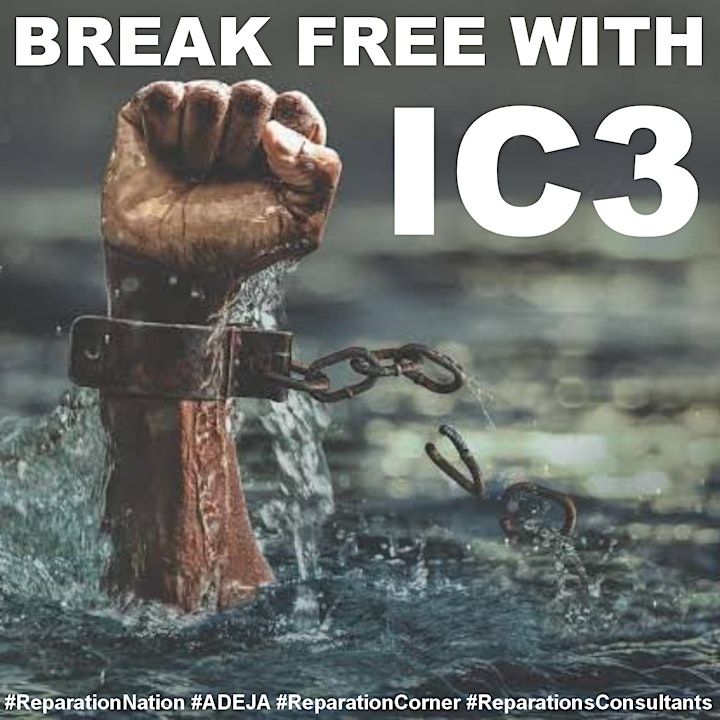
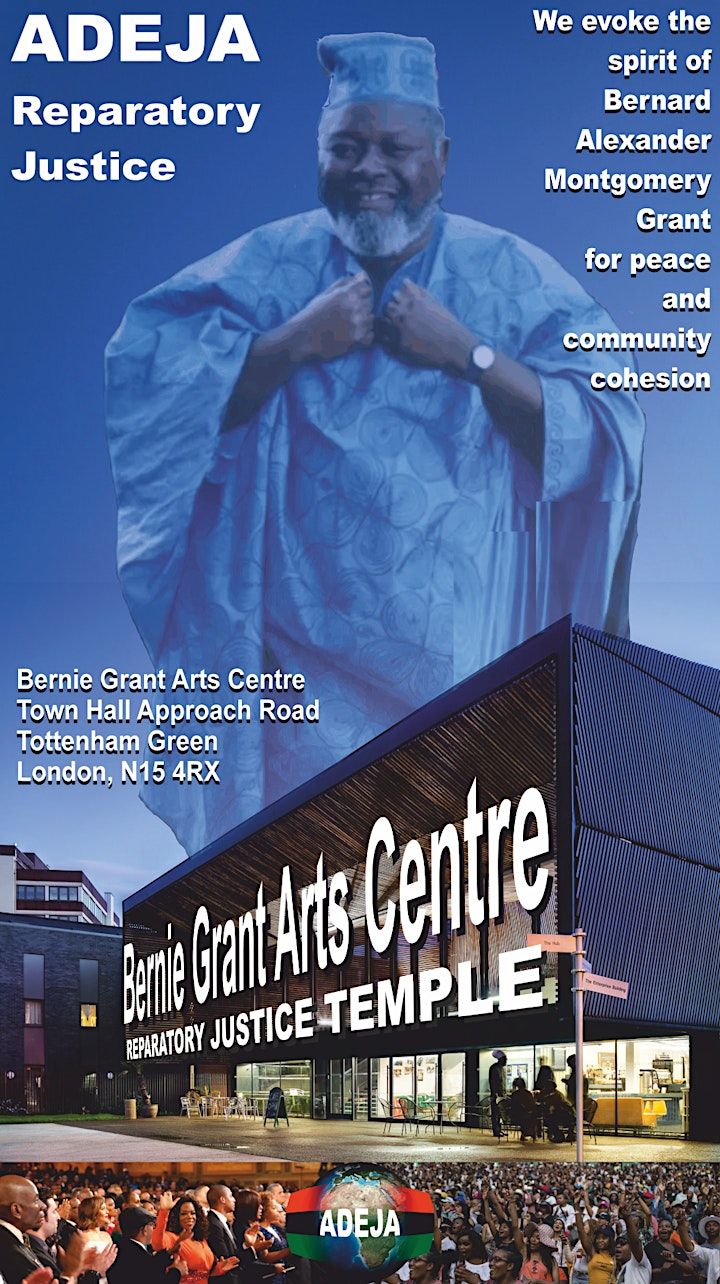
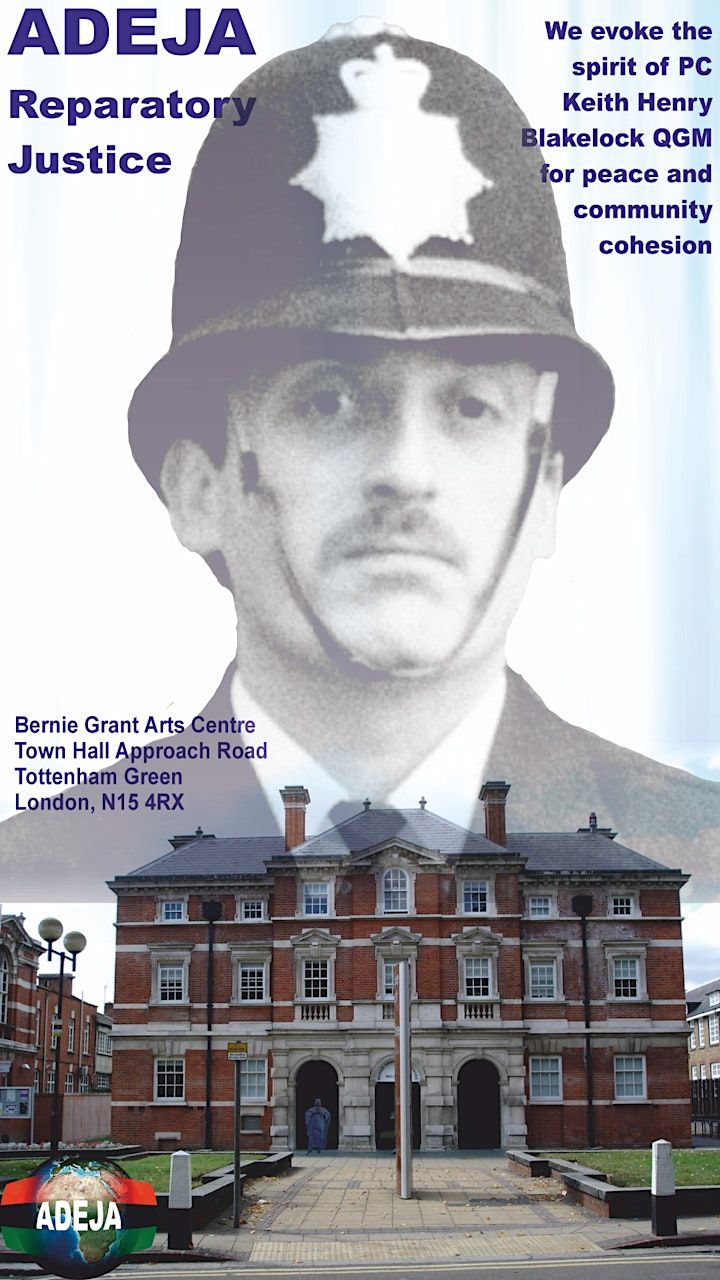
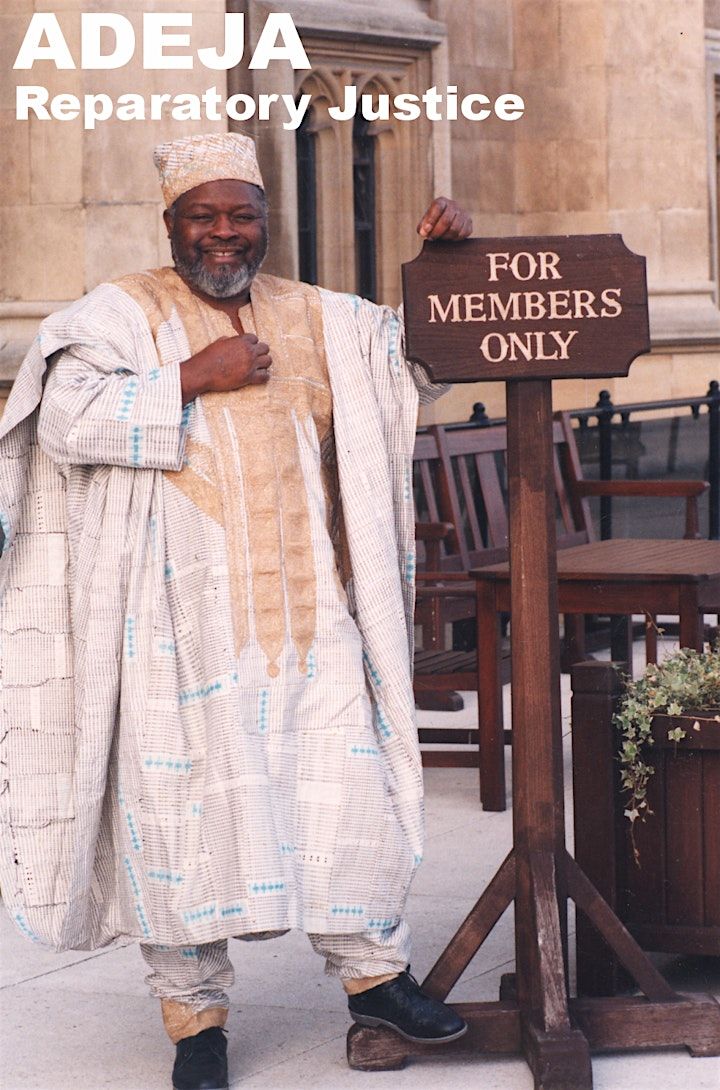
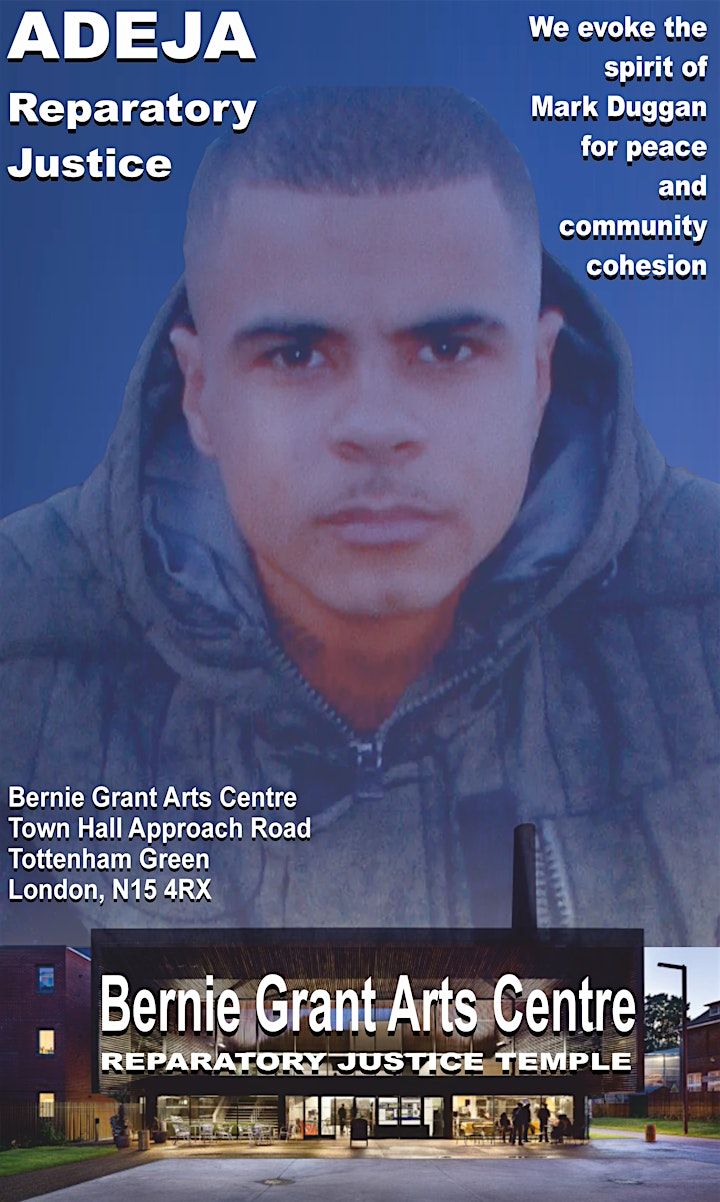
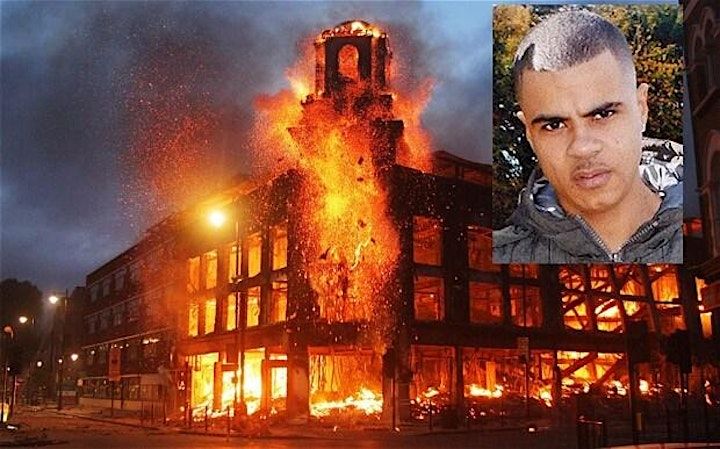
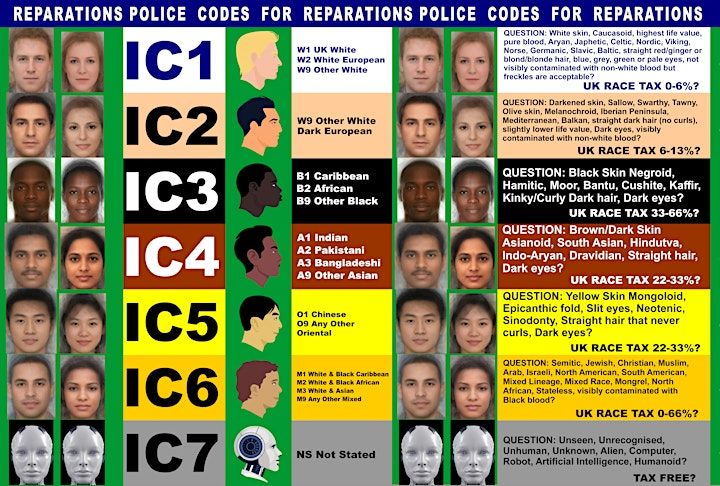
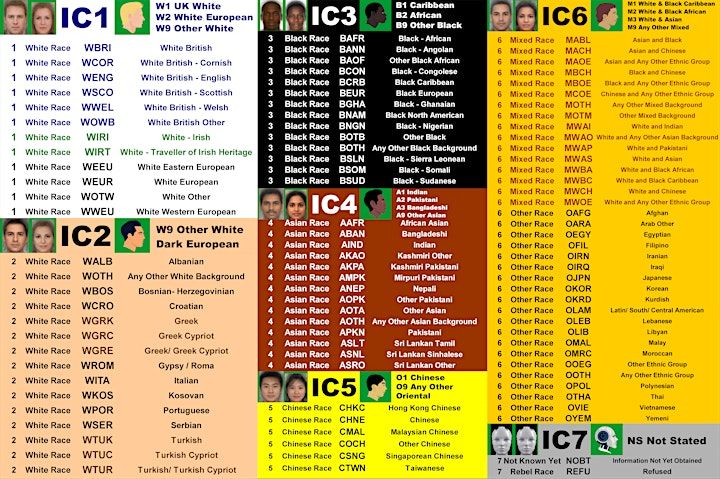
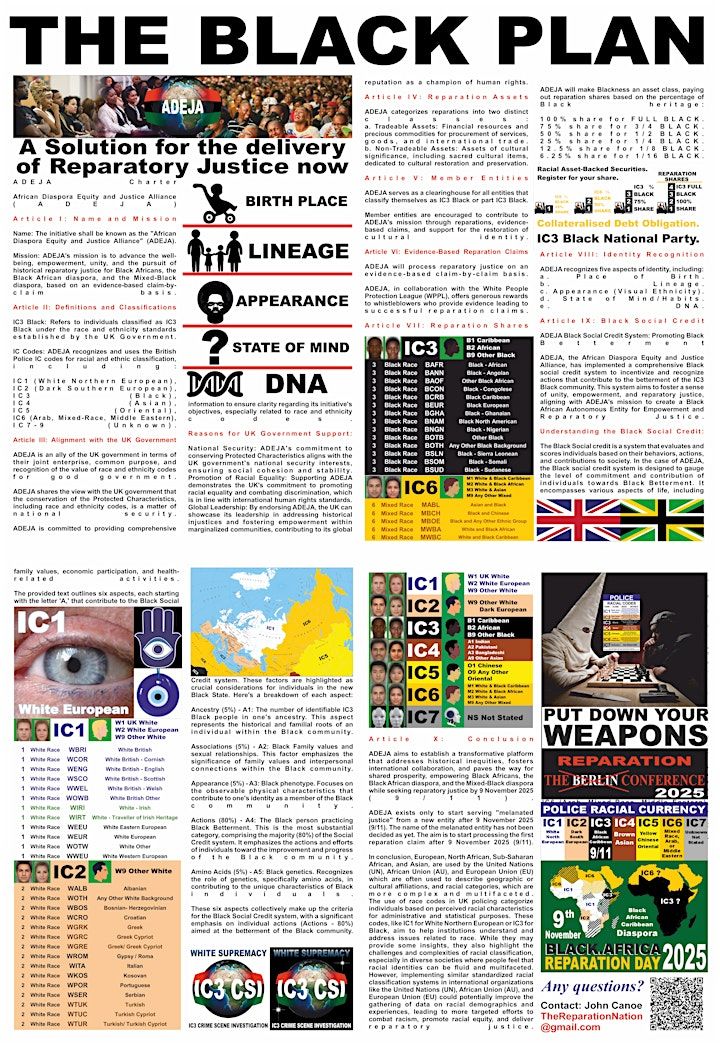
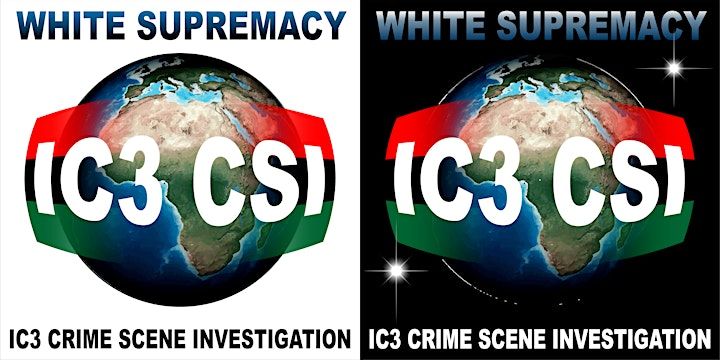

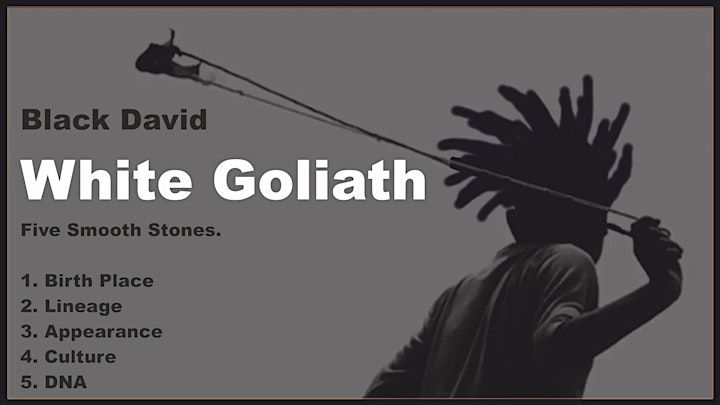
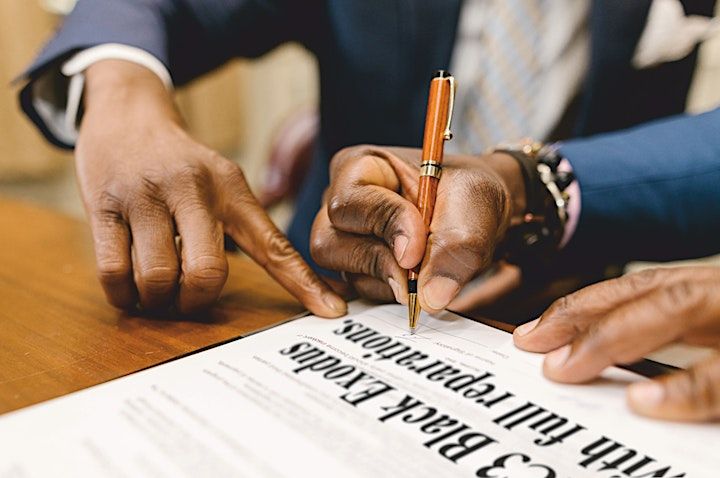
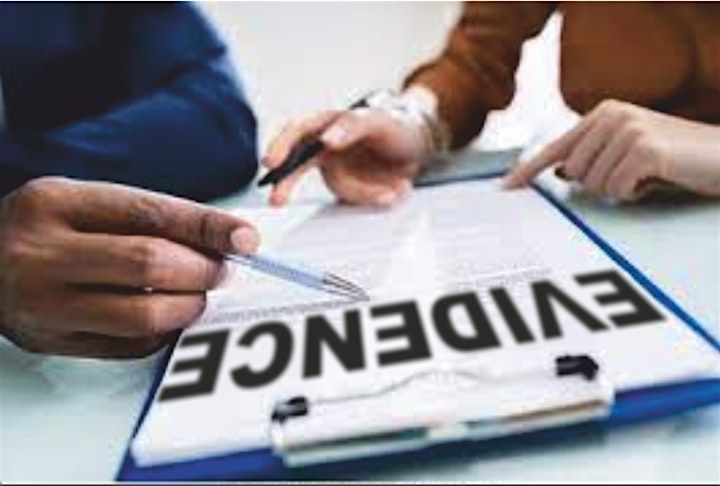
Where is it happening?
Bernie Grant Arts Centre, Tottenham Green East, London, United KingdomEvent Location & Nearby Stays:
GBP 0.00














